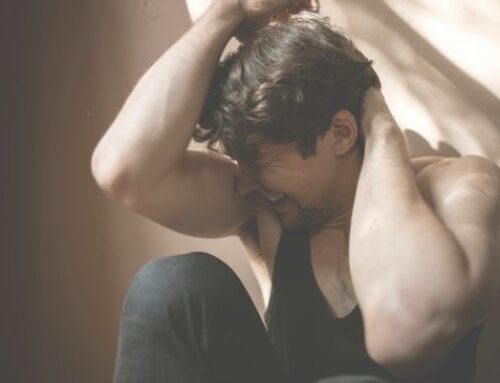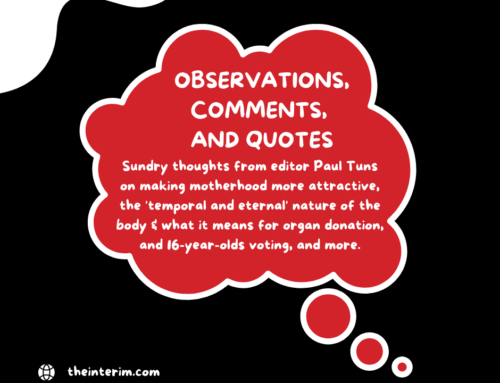Dear Supreme Court Justices:
On Feb. 6, you unanimously ruled that existing prohibitions against assisted suicide be struck down. In their place, three recommendations were made for Parliament to propose new legislation: (1) the person requesting “assisted death” must be a competent adult who consents to ending their life, (2) they must have a “grievous and irremediable” health condition, including an illness or disability, and (3) said condition must cause the individual “enduring and intolerable” suffering. As someone who strives to promote human dignity, I am dismayed. More importantly, as a woman with a disability, I am angry and frightened. Today, headlines speak of suicide as a tragedy. An able-bodied person would never be told that ending their life is a necessary and reasonable choice. Yet that is exactly the message this ruling sends to people with disabilities.
Part of your rationale was the supposed violation of sections 15 and 7 of the Charter of Rights and Freedoms. They affirm the right to be treated equally under the law regardless of minority status and, ironically, the right to “life, liberty and security of the person.” The decision to allow “assisted death” warps the concepts of “life” and “liberty” – there is an assumption that the only “good” life is one which can end at will. However, as horror stories from Belgium show, the mental distance between “you can end your life” and “you must” is quite short.
Right now, I am in my 20s, and I would say that I lead a fulfilling life. I wonder how society’s views will shift in the next few decades. Now that the “option” to end one’s life is available, the poisonous perception that life with a disability is unthinkable can only spread. Walkers and wheelchairs are common sights as far as physical mobility aids go. They will only become more visible as Canada’s baby boomers age. Someday, I fear people will ask how anyone can bear to go through a typical lifespan with limitations such as mine.
I will grant you this: Canadians with disabilities have fewer choices available to them than the able-bodied population. For example, only one university here – thankfully, the one I attend – provides full-time attendant care and accommodations outside of the classroom. There is a waiting list of at least five years for housing in my area that accommodates my physical needs…and don’t get me started on job hunting, or the connection between disability and poverty. How does death solve any of these problems? Why are we ending sufferers rather than causes of suffering? Your attempt to promote “equality” has backfired. The glaring double standard has increased.
Catherine Frazee, professor emerita of the School of Disability Studies at Ryerson University, has written that although human dignity is inherent, “it is social.” In other words, although we have dignity because we are members of the human family, it manifests itself most clearly when recognized by others. Unfortunately, your ruling encourages the opposite.
Sure, it’s harder to find a job, an apartment, and other everyday things that make a human being feel like they have dignity – but there is good news. I can end my life if I so choose. (That’s sarcasm.)
Instead of subtly encouraging disabled Canadians to die, how about ensuring we have the resources to live with true dignity? Anything less is ableism in disguise. What a shame for a country which prides itself on being free of prejudice and upholding human rights.
Yours truly,
Taylor Hyatt





